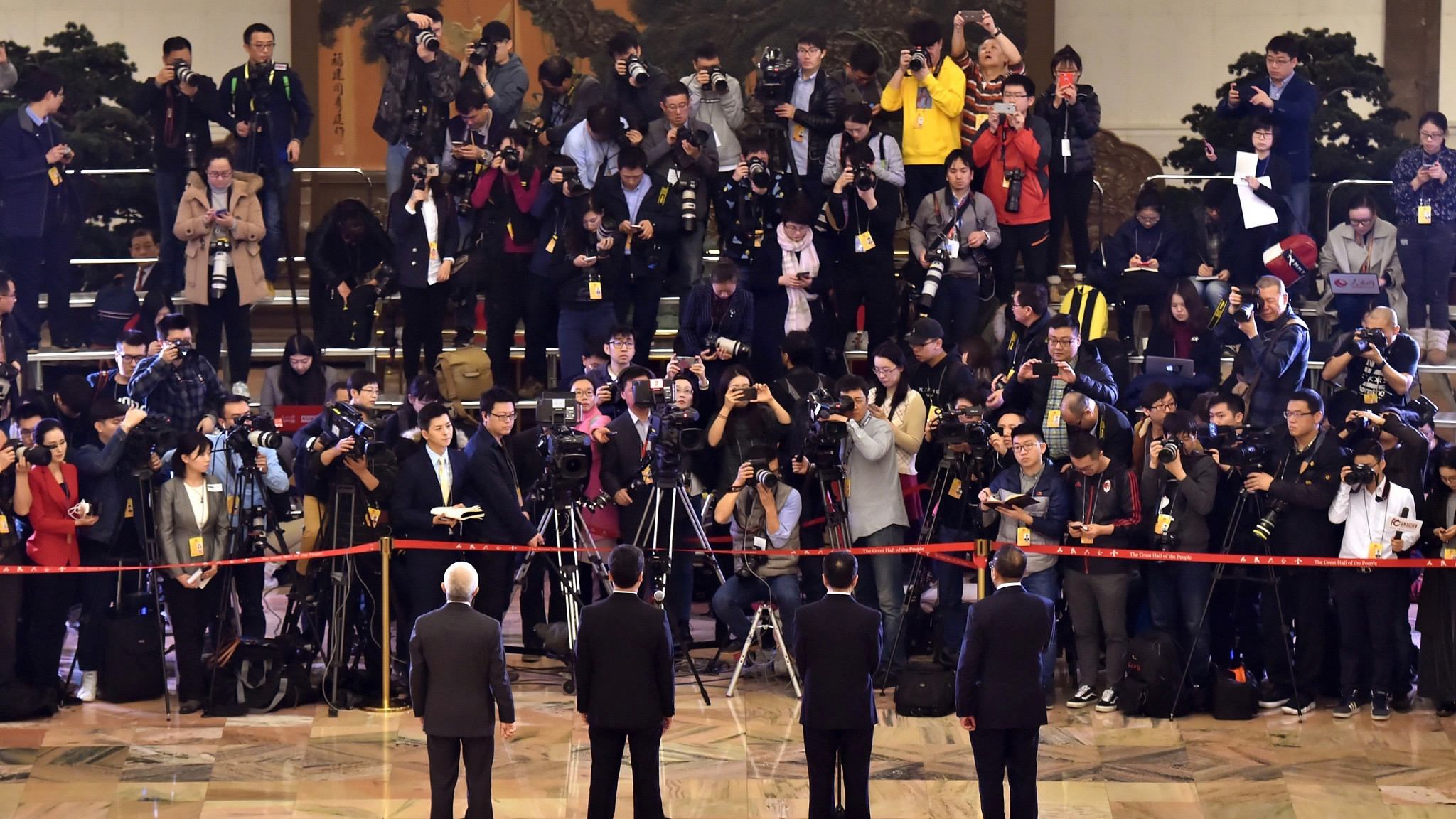Picture Facebook’s Mark Zuckerberg, Tesla’s Elon Musk or astronaut Buzz Aldrin as US congressmen, weighing in on policy matters from economic growth targets to environmental protection and national defense.
It’s an oversimplification, but in a way, this is what happens in China.
At the Two Sessions political meetings going on in Beijing at the moment, reporters have been regularly treated to so-called “Deputies’ Corridors.” These are basically mini Q&A sessions, where 10 selected deputies from the National People’s Congress – the country’s top legislature – are brought out to answer questions from gathered reporters.
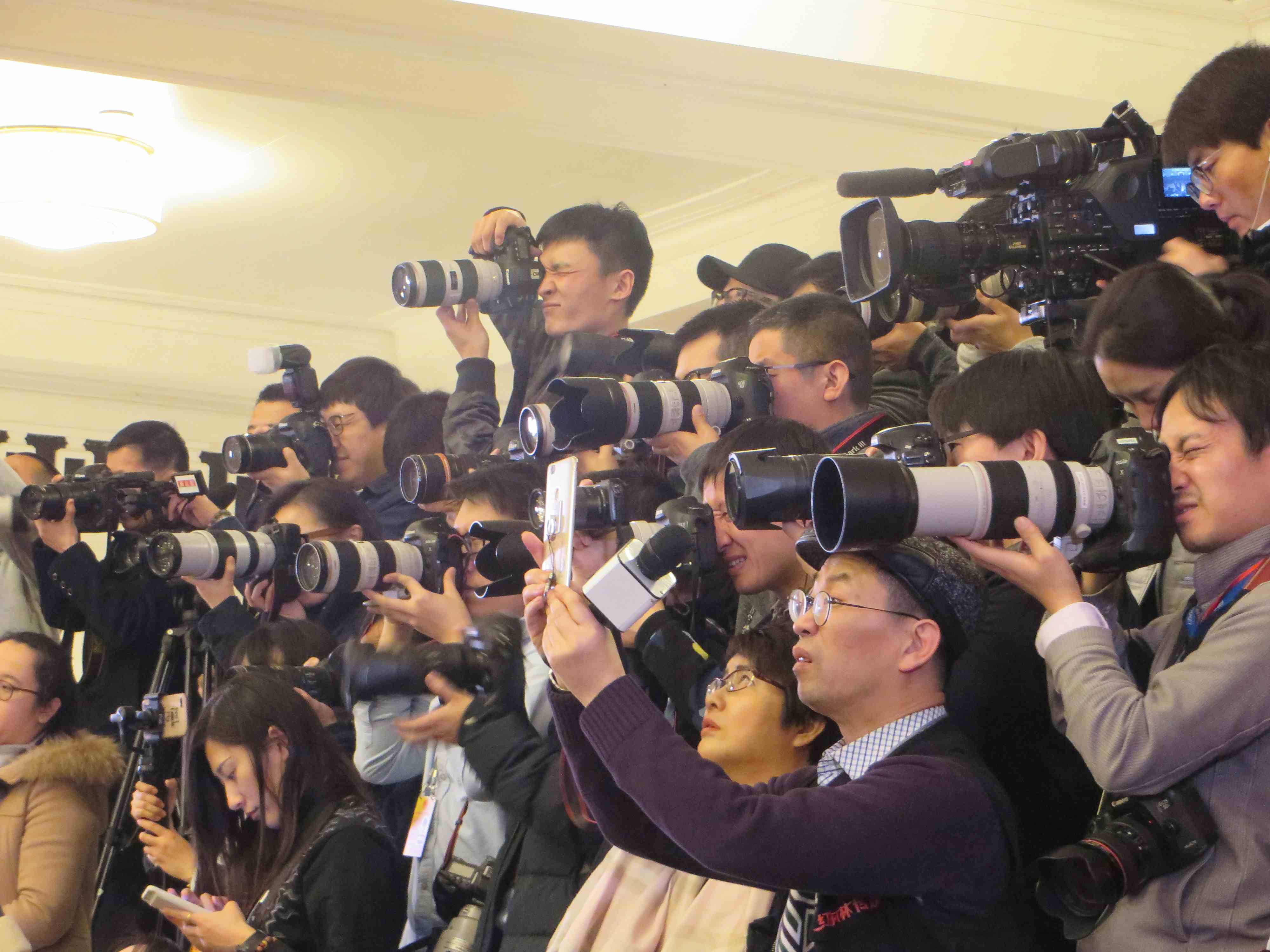
Photographers at the Deputies' Corridor on March 9, 2018. /Photo by Sim Sim Wissgott
Photographers at the Deputies' Corridor on March 9, 2018. /Photo by Sim Sim Wissgott
Such a corridor was held ahead of the NPC’s opening session on Monday, and again before an NPC plenary meeting on Friday, where two work reports from the Supreme People’s Court (SPC) and Supreme People’s Procuratorate (SPP) were presented to delegates.
On the list of designated speakers: Local and provincial leaders, judges and professors, but also an astronaut, a plane designer and a tech magnate.
The Two Sessions has its fair share of celebrities, with the likes of former basketball star Yao Ming and Hong Kong actor Jackie Chan, but they are here as members of the CPPCC – the Chinese People’s Political Consultative Conference, which is held in parallel to the NPC but is just an advisory body.
The NPC deputies play a much bigger role: They are the ones who will be voting on constitutional amendments and a new state leadership over the coming 10 days.
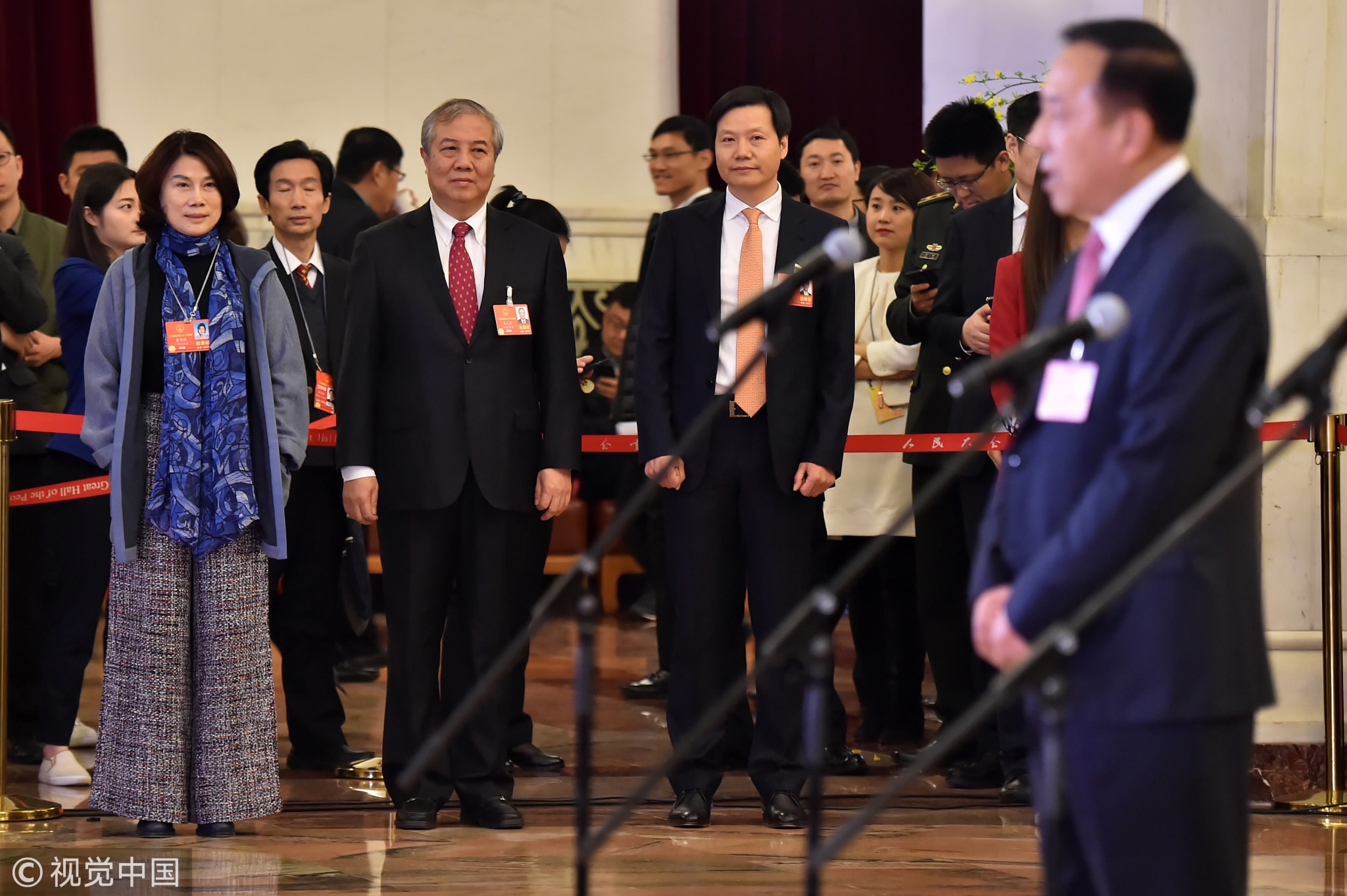
Gree chairwoman Dong Mingzhu, aircraft designer Wu Guanghui and Xiaomi CEO and founder Lei Jun wait for their turn at the Deputies' Corridor on March 9, 2018. /VCG Photo
Gree chairwoman Dong Mingzhu, aircraft designer Wu Guanghui and Xiaomi CEO and founder Lei Jun wait for their turn at the Deputies' Corridor on March 9, 2018. /VCG Photo
Yet the almost 3,000 deputies, who will serve in China’s top lawmaking body for the next five years, are much more than a collection of career politicians, like you would have in many other countries’ parliaments.
Obviously, it’s hard to compare China’s political system to others.
And there are plenty of generals, business people and celebrities who make it into governments around the world as ministers or advisors.
Still, as a foreigner used to European parliamentary systems and covering the Two Sessions for the first time, I did not expect the number of high-profile names attending the NPC sessions this week – people known for achievements well outside politics.
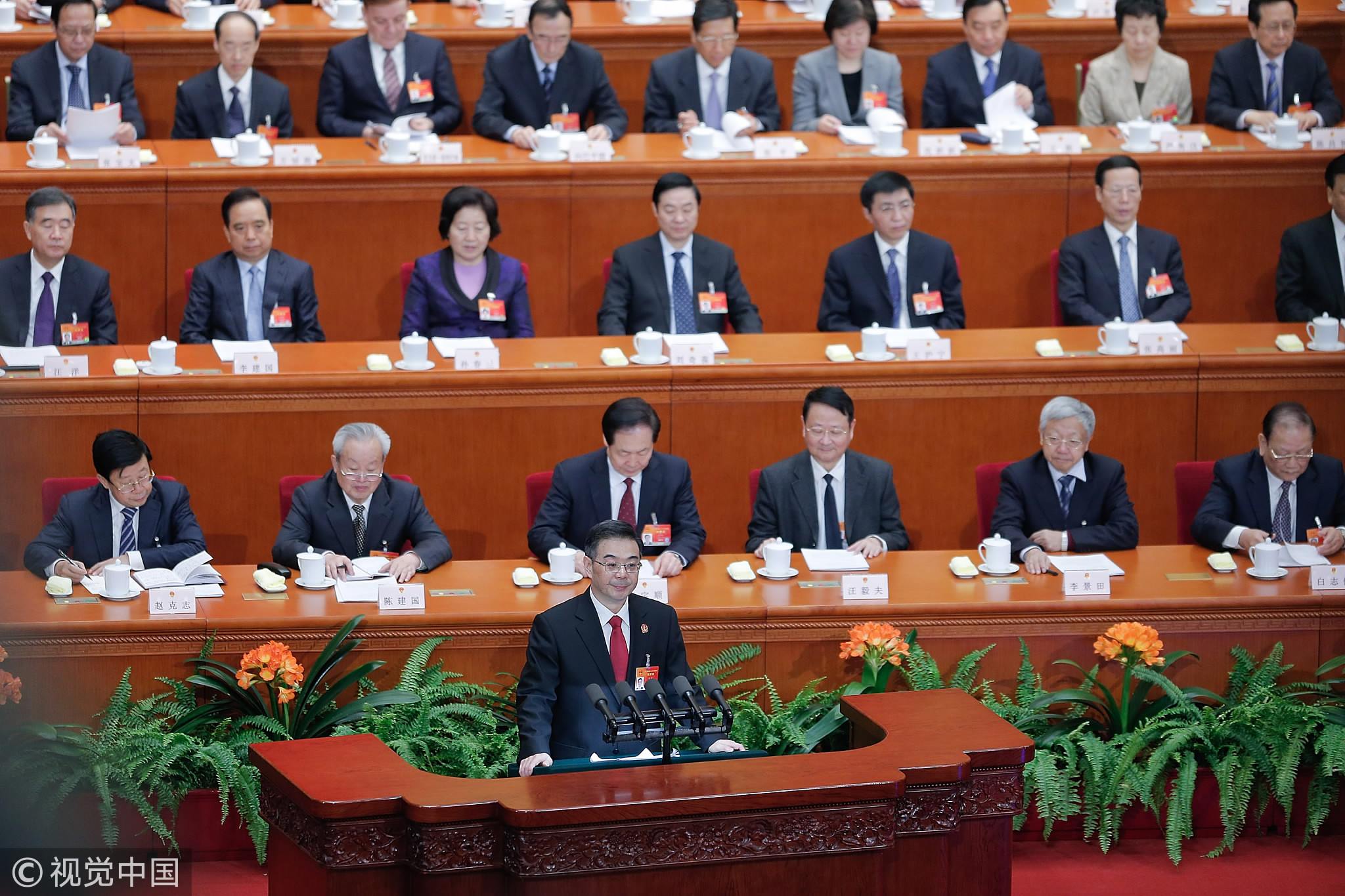
Supreme People's Court chief justice Zhou Qiang delivers a work report at the Great Hall of the People in Beijing, China on March 9, 2018. /VCG Photo
Supreme People's Court chief justice Zhou Qiang delivers a work report at the Great Hall of the People in Beijing, China on March 9, 2018. /VCG Photo
On Friday, Xiaomi founder and CEO Lei Jun was one of the NPC deputies answering questions at the Deputies’ Corridor.
He talked of the need for quality and innovation – two priorities laid out in the government work report delivered by Premier Li Keqiang on Monday.
“Only when we develop and increase our quality, can we conquer or eradicate the fact that there are a lot of counterfeits in China,” Lei told reporters. “Only when we have top design ability can China enter the international arena.”
Dong Mingzhu, chairwoman of Gree Electric Appliances, also pushed for more technological innovation. “As a manufacturing company in China our role is in helping China to transition from a traditional manufacturing powerhouse to a technological powerhouse,” she said, highlighting common goals in her role as lawmaker and manufacturing boss.
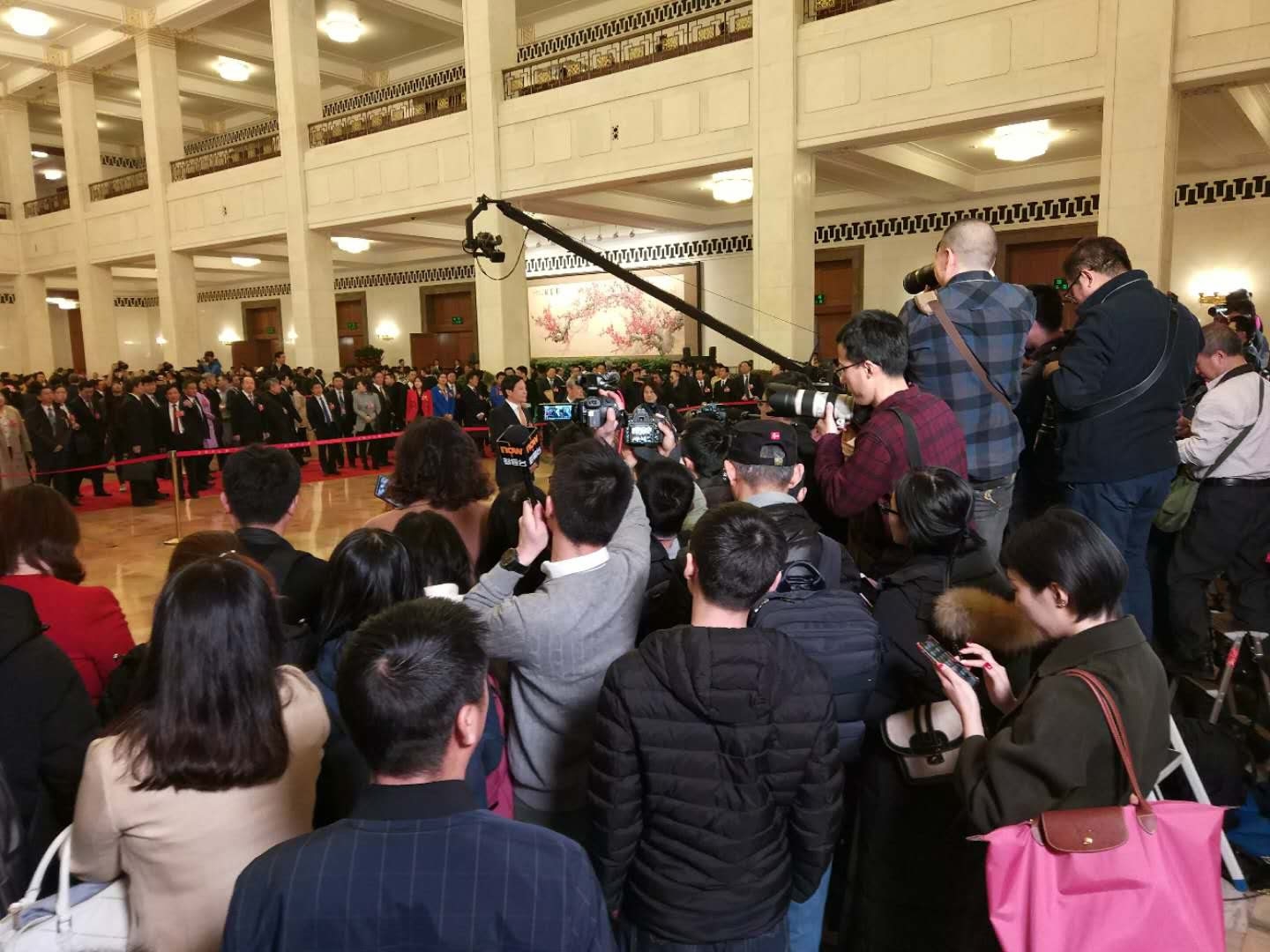
Reporters gather at the Deputies' Corridor at the Great Hall of the People in Beijing, China on March 9, 2018. /Photo by Sim Sim Wissgott
Reporters gather at the Deputies' Corridor at the Great Hall of the People in Beijing, China on March 9, 2018. /Photo by Sim Sim Wissgott
Wu Guanghui, chief designer of China’s new C919 commercial plane, talked of using advanced technology to improve safety and make more environmentally friendly aircraft.
On Monday, two other household names – Tencent CEO Pony Ma and female astronaut Wang Yaping, who famously gave Chinese schoolchildren a physics lesson from space – discussed the digital economy and the need for continued space exploration in the Deputies’ Corridor.
Less well-known, but nevertheless experts in their fields, were Fu Xinping, chief prosecutor in Guizhou province, and Han Deyun, a Chongqing-based lawyer, who discussed necessary legal reforms on Friday, including the use of AI and big data to make China's court system more transparent and efficient.
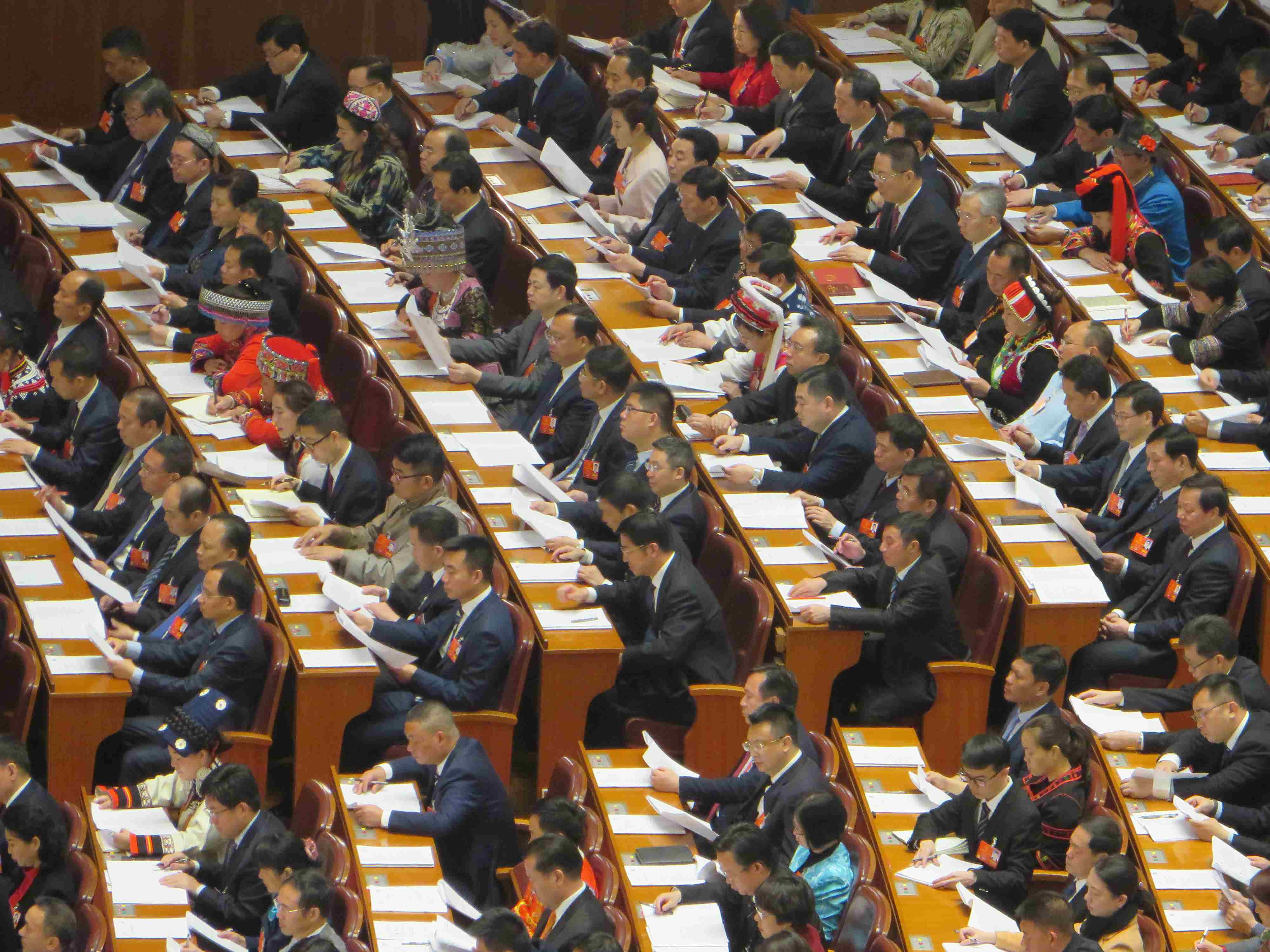
Deputies attend an NPC plenary session at the Great Hall of the People in Beijing, China on March 9, 2018. /Photo by Sim Sim Wissgott
Deputies attend an NPC plenary session at the Great Hall of the People in Beijing, China on March 9, 2018. /Photo by Sim Sim Wissgott
Lawyers are not distributed equally around the country and 75 percent of legal cases in 2016 had no lawyer involved, Han deplored this fact as deputies prepared to hear the reports from the country’s top judge and top procurator.
The increasing number of lawyers elected as NPC deputies boded well however for judicial reforms, he said.
In the US and Europe, career politicians have come under fire of late for being too caught up in their national political system and knowing little else.
In that sense, it’s been interesting to see and listen to some legislators at the Two Sessions, whose day job most definitely is not politics.

